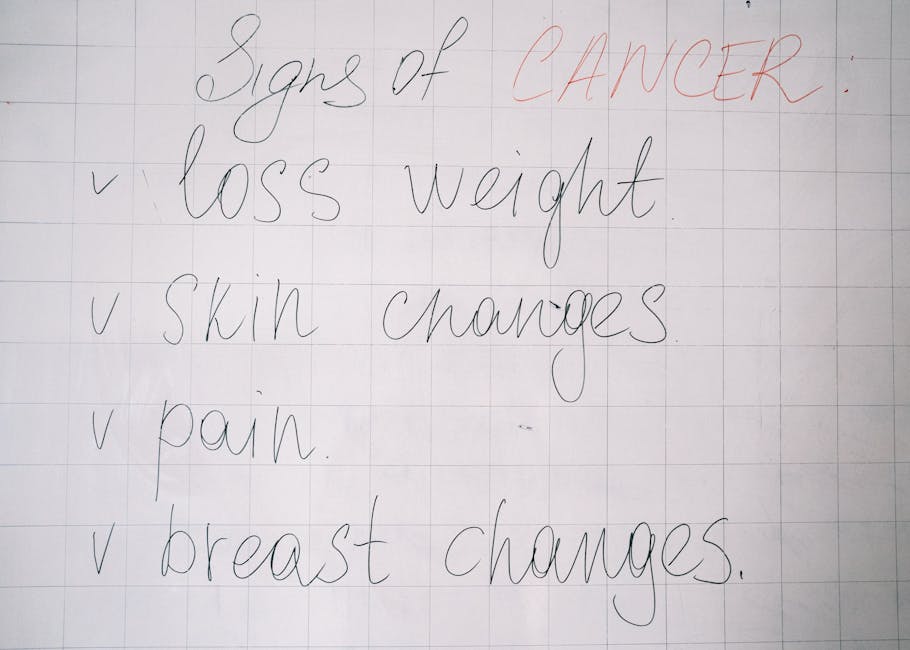Navigating Psychiatric Evaluations: A Complete Guide

Welcome to the world of psychiatric evaluations, where the only thing crazier than your thoughts is the paperwork to prove them. Whether you’re seeking therapy, medication, or just a good old-fashioned label to slap on your forehead, navigating the maze of assessments and assessments can feel like trying to find your way out of a psychological corn maze. But fear not, dear reader, for we have compiled a comprehensive guide to help you survive the wild ride that is psychiatric evaluation. So grab your straightjacket and a pen, because we’re about to embark on a journey through the wonderfully wacky world of mental health assessments.
Understanding the Purpose of Psychiatric Evaluations
So you’ve been asked to undergo a psychiatric evaluation, huh? Don’t worry, it’s not because your friends think you’re a little loony (even though they might). These evaluations serve a real purpose, and it’s not just to poke and prod at your brain for fun.
First and foremost, psychiatric evaluations are designed to assess your mental health and well-being. It’s like a check-up for your brain - a chance for a trained professional to get to know you and understand how you’re feeling and thinking. Kind of like your brain’s version of a spa day, except instead of getting a massage, you’re answering a lot of personal questions.
Another important goal of a psychiatric evaluation is to identify any underlying mental health conditions that may be impacting your daily life. Whether it’s anxiety, depression, or some other fun little quirk, these evaluations help pinpoint what’s going on so that you can get the help you need to feel better.
Ultimately, the purpose of a psychiatric evaluation is to create a roadmap for your mental health journey. It helps professionals understand your unique needs and develop a treatment plan that’s tailored just for you. So next time you find yourself in the hot seat, just remember – it’s all part of the process to help you live your best, mentally healthy life.

Preparing for Your Psychiatric Evaluation Appointment
So, you’ve finally decided to take the plunge and schedule a psychiatric evaluation appointment. Congratulations! It’s a big step towards taking care of your mental health and well-being. But before you head off to see the doc, here are a few things you might want to consider:
First things first, make sure you have all your paperwork in order. This includes any previous medical records, insurance information, and a list of current medications. Trust me, you do not want to show up and realize you left everything on your bedside table.
Next, it might be a good idea to jot down a few notes about why you’re seeking an evaluation in the first place. Maybe you’re feeling anxious, depressed, or just a little bit loony – whatever the reason, having a few key points written down can help you stay on track during your appointment. And bonus points if you can do it in glitter gel pens. Psych docs love that shit.
Lastly, don’t forget to bring a support person with you if you feel like you might need some moral support. Whether it’s a friend, family member, or your trusty pet chihuahua, having someone there to hold your hand (or paw) can make the whole experience a lot less stressful. Just make sure they promise not to embarrass you with any embarrassing stories from your past – save that for later!

What to Expect During a Psychiatric Evaluation
So, you’ve finally decided to get that psychiatric evaluation you’ve been putting off for years. Congratulations on taking the first step towards potentially uncovering all the quirks and craziness that make you, well, you!
During your evaluation, you can expect a few things to happen. Here’s a sneak peek of what’s in store:
- Intense Questioning: Get ready for some serious probing into your deepest, darkest thoughts and feelings. It’s like a therapy session on steroids, but without the comfy couch.
- Weird Tests: From word association to drawing a picture of your worst nightmare, be prepared to showcase your artistic and linguistic talents in ways you never thought possible.
- Awkward Silence: Because who doesn’t love sitting in a room with a total stranger while the sound of crickets fills the air? Don’t worry, it’s all part of the process.
Overall, the psychiatric evaluation might be a bit intimidating, but remember, it’s all in the name of self-discovery and mental health improvement. So, take a deep breath, put on your game face, and get ready to dive headfirst into the wonderful world of psych evals. You’ve got this!

Common Assessments and Questionnaires Used in Psychiatric Evaluations
So you’ve finally decided to seek help for your mental health, and now you’re faced with a bunch of assessments and questionnaires that seem more confusing than a Rubik’s cube. Don’t worry, we’re here to break it down for you in a way that won’t make you want to pull your hair out (if you have any left, that is).
Common assessments and questionnaires you might encounter during a psychiatric evaluation:
- PHQ-9 (Patient Health Questionnaire): A fun little survey that asks you how often you’ve been bothered by various symptoms like feeling down or hopeless. Kind of like a mental health version of ‘Would You Rather’.
- GAD-7 (Generalized Anxiety Disorder 7): This one focuses on how often you’ve been bothered by symptoms related to anxiety, like feeling nervous or restless. Because who doesn’t love a good buzz of stress every now and then?
Now, don’t be alarmed if you feel like you’re filling out a job application with all these questions. The purpose of these assessments is to help your psychiatrist get a better understanding of what you’re going through so they can provide the best possible care. Think of it as a mental health ‘choose your own adventure’ game – just with less dragons and more therapy.
Discussing Your Symptoms and Medical History with the Evaluator
When you sit down with the evaluator, don’t hold back! Be as open and honest as possible about your symptoms and medical history. Remember, this isn’t a first date – there’s no need to impress anyone here. Here are some tips to help you navigate this potentially awkward conversation:
Be prepared: Before your appointment, take some time to jot down your symptoms, when they first started, and any treatments you’ve tried. This will help you remember everything when put on the spot.
Don’t sugarcoat: Don’t be shy about sharing every little detail, no matter how embarrassing it may be. That strange rash on your back? That recurring dream about flying squirrels? It’s all relevant information!
Ask questions: If you don’t understand something the evaluator says, don’t hesitate to ask for clarification. Remember, they’re here to help you, not to confuse you with medical jargon.
Exploring Treatment Options Based on Evaluation Results
After conducting a thorough evaluation, it’s time to dive into the exciting world of treatment options! Based on the results, we can now explore some potential solutions to your unique situation. Let’s break it down, shall we?
First up, we have the classic approach of therapy. Whether it’s talk therapy, cognitive-behavioral therapy, or even art therapy (because who doesn’t love coloring outside the lines?), there are plenty of ways to work through those evaluation results. Maybe you’ll find yourself sitting on a couch, pouring out your feelings to a therapist, or you’ll be getting your hands dirty with some finger paints. The choice is yours!
Next, we have the ever-popular medication route. From antidepressants to anti-anxiety pills, there’s a smorgasbord of options out there to help you feel like your best self. Think of it as a little pick-me-up in pill form – just don’t forget to read the fine print about potential side effects. After all, who wouldn’t want to experience both relief and the occasional hallucination?
If you’re feeling a bit more adventurous, why not consider some alternative treatments? Acupuncture, aromatherapy, or even laughter yoga (yes, it’s a real thing) could be just the ticket to addressing those evaluation results in a whole new way. Plus, who doesn’t love the idea of getting jabbed with tiny needles or surrounded by a cloud of essential oils? It’s like a spa day, but with a touch of whimsy!
FAQs
What do I wear to a psychiatric evaluation?
Well, you can go for the classic comfy sweatpants and hoodie combo for that casual “I’m here to talk about my feelings” look, or you can go all out and dress to impress with a suit and tie to show your mental health means business. But really, wear whatever makes you feel comfortable and confident!
Do I have to bring anything to a psychiatric evaluation?
Aside from your fabulous self, it’s always a good idea to bring any relevant medical records, a list of medications you’re currently taking, and a notebook to jot down any important information or questions that come up during the evaluation. Oh, and maybe a good luck charm if you’re feeling superstitious!
How long does a psychiatric evaluation usually last?
Well, that really depends on how chatty you are! But on average, a psychiatric evaluation can last anywhere from 45 minutes to an hour. Just remember, this isn’t a race, so take your time and try not to sprint through your life story like you’re auditioning for a one-person play.
Can I bring a friend or family member with me to a psychiatric evaluation?
Sure, why not make it a family affair? Having a trusted friend or family member with you during your evaluation can provide support and help you feel more at ease. Just make sure they don’t try to answer all the questions for you – this is about your mental health, not theirs!
What should I do if I feel uncomfortable during a psychiatric evaluation?
First things first, take a deep breath and remember that it’s totally normal to feel a little awkward or vulnerable when discussing your mental health. If you’re feeling really uncomfortable, don’t be afraid to speak up and let your evaluator know. They’re there to help you, not make you squirm in your seat like a hot potato!
Navigating the Seas of Sanity
And there you have it, dear readers! Navigating psychiatric evaluations may seem like a daunting journey, but fear not. Armed with this complete guide, you are now equipped to sail through the stormy waters of mental health assessments with ease.
Remember, just like a compass guiding a ship through rough seas, psychiatric evaluations are just a tool to help steer you towards a better understanding of your mental health. So set sail, embrace the journey, and never forget to pack your sense of humor – after all, laughter is the best medicine (well, after therapy, of course).
Safe travels, fellow navigators! And may your mental health journey be filled with smooth sailing and clear skies ahead. Farewell, until we meet again on the next adventure! ⚓🌊🌞






